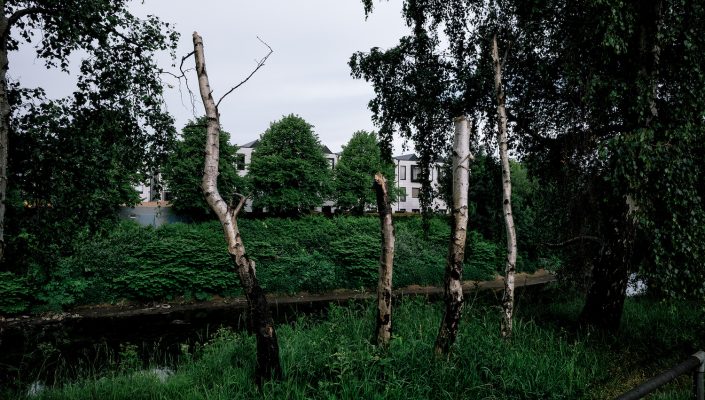Following my BA in English, I was keen to pursue my interest in working in the arts, heritage, and culture sector. I applied for an MA in Arts Management, Policy and Practice and moved to Manchester, and, from December 2021 to May 2022, I was lucky enough to be on placement one day a week with Quarantine as an Admin, Research and Communications Assistant. My role involved working on both 12 Last Songs and The people of in varying capacities, as well as on smaller, ongoing projects that I had an interest in.
When I started with Quarantine, each member of the team invited me to have a conversation with them about their role, how they came to be working with the company, and what their background in the arts was. When speaking with Sarah Hunter, Artist & Producer, she asked me about my own interests and what I wanted to pursue, and I shared my interest in sustainability in the arts. Consequently, she later asked me to help work on both updating Quarantine’s Sustainability Policy & Action Plan, as well as the potential of the company starting to use carbon offsetting. I also did some research on both creating a green credentials checklist for both supplier and venues, so that Quarantine could attempt to be more sustainable in their choices regarding these.
In building a credentials checklist, I was able to narrow down criteria for suppliers and venues that would ensure sustainability was a priority when choosing which ones to use. For the list of suppliers, I chose a question-based structure for the credentials, allowing me to effectively analyse whether they were the most ethical choice for Quarantine. When I began the process, the number of suppliers and potential ways to analyse them was overwhelmingly large; by choosing a set of questions, I was able to cover both ethical concerns around social impact, such as whether they treat employees well, as well as environmental consequences. Similarly, when looking at building a credentials checklist for potential venues, I chose a method that allowed me to effectively cover environmental impact, but also a venue’s accessibility. This was because I quickly realised that there was some overlap between the two.
Through carrying out this research, I was able to contribute to the updating of a new sustainability policy for Quarantine, as well as implement some of the actions, and grow my knowledge about sustainable practices for arts organisations. I quickly learnt that creating a sustainability policy is much more complicated than it might seem on the surface. Often, putting sustainability at the heart of an organisation means consistently balancing it with elements of the work – such as time, money, or access – that might contradict it as a goal. For example, the most accessible venue for an arts event or performance might not be the one that is the most sustainable. Likewise, taking projects to new locations and groups of people – which is important to Quarantine and their work – might require travel options that don’t help to reduce the organisation’s carbon footprint.
The latter example is where a consideration of carbon offsetting came in. Carbon offsetting is defined as the process of a ‘company or organisation directly (for example planting trees in their own garden or installing solar panels on their own property) or indirectly (by funding projects in other locations) removes greenhouse gases from the atmosphere or prevents a certain quantity of greenhouse gases from being released’ (ESGMark). This can be done through the organisation themselves, or by third parties, such as carbon offset schemes. When discussing the potential of this, we thought a lot about the risks of using carbon offsetting. These mainly centre around using it as an excuse to be less environmentally conscious in other elements of one’s work, as well as concerns about the growing market surrounding it as a practice. We concluded that, though potentially useful, carbon offsetting should always be considered in partnership with other sustainability actions.
When shadowing a meeting between Sarah and Michelle Rocha, the lead for sustainability on Quarantine’s board and Head of Touring for Manchester International Festival, we discussed the need for arts organisations to embed thinking about sustainability into everything they do, from the original conception of projects to the delivery of the final project. This has led me to thinking about what the practice of sustainability should mean and represent. I have since had discussions with other members of the arts and heritage sector about what they believe, leading to conversations around the use of the word. Should we even be calling it sustainability? Is what we have right now something we want to maintain and preserve? What do we want to achieve with arts policy around social impact and the environment, and can we strive for something new and better than what we already have?
It is this thinking, that stemmed from my work with Quarantine, that I shall take away with me from my placement, as well as a growing relationship with a company that is making some of the most poignant work I have encountered so far. Thank you, Quarantine.
Ella Pound, MA (in Arts Management, Policy and Practice) Placement 2021-22
